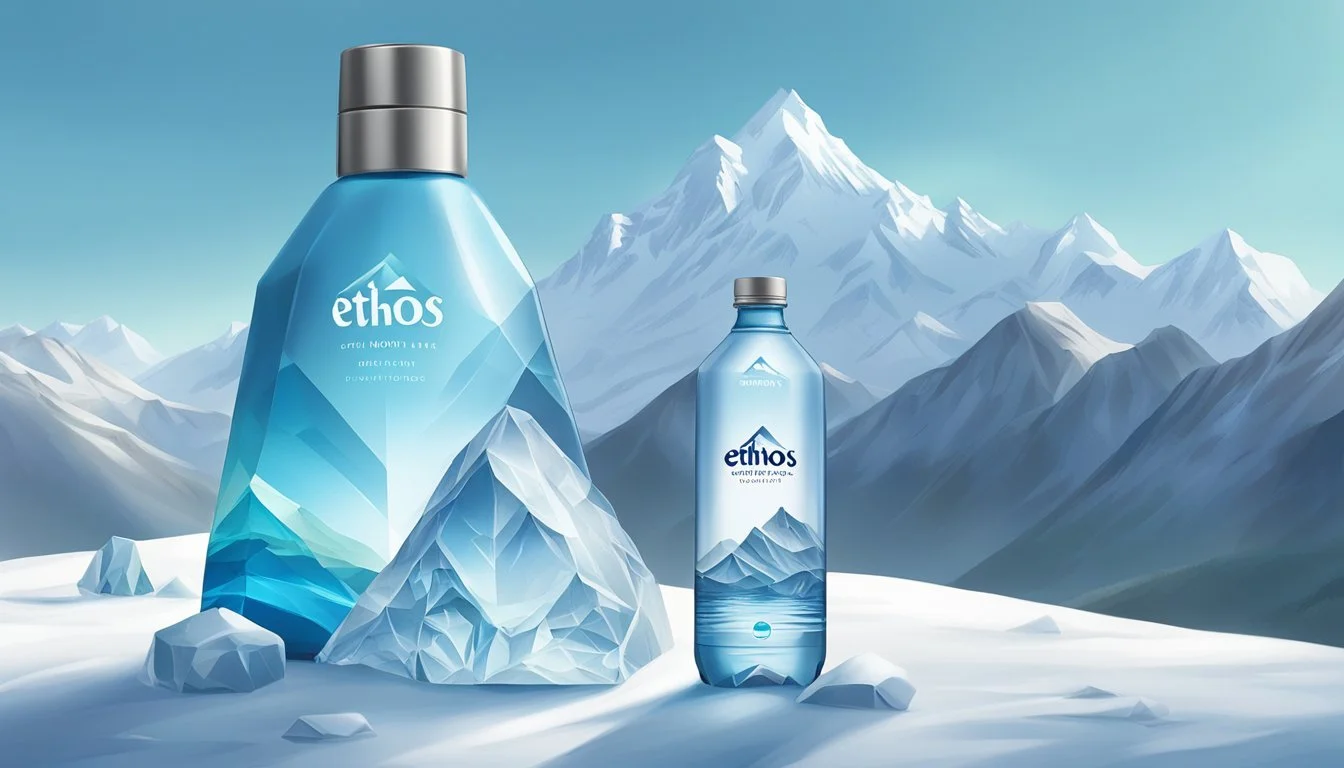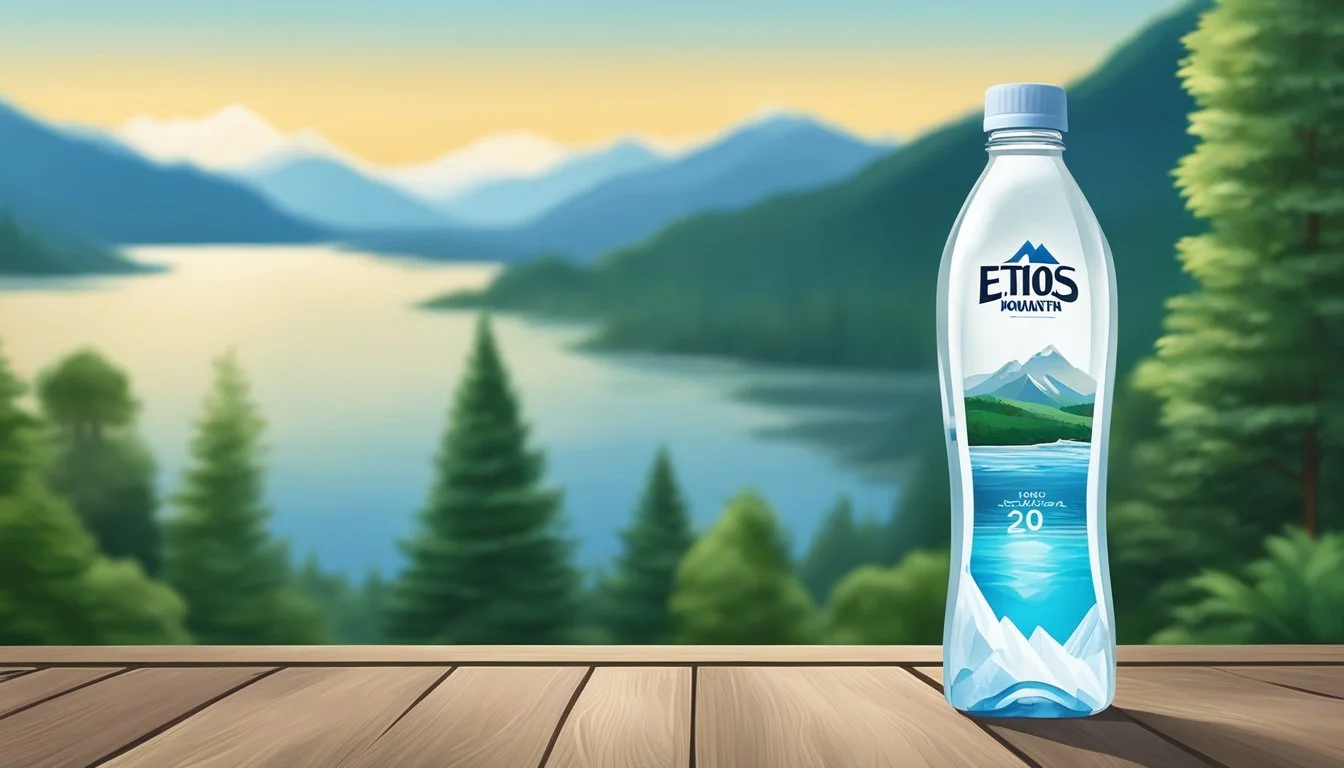Ethos vs. Ice Mountain
A Comparative Analysis of Bottled Water Brands
In the realm of bottled water, consumers are often faced with a myriad of choices, each brand boasting unique sources, purification methods, and taste profiles. Among these, Ethos and Ice Mountain stand out for their distinct backgrounds and market presence. Ethos Water, a brand with a socially responsible edge, pledges to help children get clean water with each purchase. On the other hand, Ice Mountain sources its water from the Midwest and is often noted for its crisp taste.
Choosing between Ethos and Ice Mountain goes beyond personal taste preference; it extends into the ethos of the brands themselves. Ethos, marketed by Starbucks, is positioned as an ethically conscious product that supports water, sanitation, and hygiene education programs. Ice Mountain, part of the Nestlé family of brands, emphasizes its regional sourcing and natural filtration process. Consumers weigh not only the flavor of the water but also the values represented by each brand.
The bottled water industry's growth has been fueled by consumer demand for convenience and perceptions of purity. However, in comparing Ethos and Ice Mountain, the decision is further complicated by factors such as the environmental impact of bottled water, the social responsibility of corporations, and the actual benefits of the hydration each product offers. As these considerations play an increasingly significant role in consumer decisions, they warrant a closer look to determine which bottled water might hold the edge in the matchup between Ethos and Ice Mountain.
Overview of the Bottled Water Industry
The bottled water industry has seen significant growth due to demand from consumers for convenient and perceived high-quality sources of water. In this section, we will examine the ascent of bottled water brands and delve into the specifics of Ethos Water and Ice Mountain, two notable names in the market.
The Rise of Bottled Water Brands
The last few decades have witnessed an exponential rise in bottled water brands. Consumers have increasingly opted for bottled water due to its convenience, taste, and marketing efforts that tout purity and health benefits. Various brands have capitalized on this trend, offering everything from artesian water to mineral-enhanced options, which has led to a crowded marketplace. Statistics have shown a marked increase in sales, although there has been a minor fluctuation related to economic conditions and consumer awareness about environmental impacts.
Key Players: Ethos and Ice Mountain
Ethos Water and Ice Mountain are two prominent brands that illustrate the diversity within the bottled water industry. Ethos, a brand associated with social responsibility, stands out by pledging to contribute to humanitarian water programs. They market their product not just as a beverage but also as a force for global change, appealing to ethically minded consumers.
Ice Mountain, on the other hand, is recognized for its regional sourcing and natural purification process. Known for its crisp taste, it is sourced from various springs across the Midwest. Ice Mountain has established a strong market presence, resonating with consumers who prioritize the origin and purity of their bottled water. Both brands demonstrate the industry's capacity to segment the market and target specific consumer preferences, resulting in diverse choices for the public.
Water Source and Purification Process
When comparing Ethos and Ice Mountain bottled waters, it's essential to examine their water sourcing locales and the methods used for purification and filtration. These factors significantly influence water quality and consumer preference.
Ethos Water Sourcing
Ethos Water sources its product primarily from public water systems. The brand's goal is not just to provide bottled water, but to support water access initiatives globally. While Ethos does undergo filtration and additional purification processes to ensure quality, the source is much like the tap water that consumers might find in their homes. However, no specific aquifer or mountain spring water sources are linked to Ethos.
Ice Mountain Natural Spring Water
Ice Mountain, on the other hand, explicitly mentions that its water comes from numerous natural springs in the Midwest. This region is known for its vast aquifers and pristine spring water. Springs listed on Ice Mountain's product labels include locations within Michigan, giving a clear geographical link to the brand's water source.
Purification and Filtration Techniques
Ethos:
Utilizes a multi-step purification process that includes reverse osmosis and/or distillation.
Employs micron filtration to remove impurities, followed by ozonation for sanitation.
Ice Mountain:
Subscribes to methods that ensure the natural essence of spring water is maintained while meeting safety standards.
Relies on filtration and employs UV light or ozone for purification, without detailing specific techniques on the label.
Both brands adhere to standards set by the Food and Drug Administration (FDA) for bottled water. They ensure that consumers receive clean and safe drinking water, but each takes a different approach to how they source and process their products.
Health Impact of Bottled Water
When considering the health impact of bottled water, it's important to examine pH levels, mineral content including essential electrolytes, and potential contaminants like heavy metals and chlorine. These factors significantly influence the overall quality of bottled water and its effects on health.
Understanding pH Levels
The pH level of water indicates its acidity or alkalinity, which is measured on a scale from 0 to 14. Neutral pH is 7, with lower values being acidic and higher values being alkaline. Ethos Water typically markets itself as a more alkaline option, with pH levels potentially above 7, which proponents suggest can counteract body acidity. On the other hand, Ice Mountain water reports a pH that tends to be close to neutral. The body maintains a strict pH balance; therefore, the health benefits of alkaline water are still a subject of research and debate.
Essential Minerals and Electrolytes
Bottled water can be a source of essential minerals and electrolytes, which are vital for hydration and bodily functions. These can include calcium, magnesium, and potassium. Ice Mountain Water provides a mineral content label, allowing consumers to understand what they're ingesting. Ethos Water also offers mineral-rich water, though their exact electrolyte content can vary per bottle. Both brands have their mineral content regulated to ensure safety for consumption.
Contaminant Concerns: Heavy Metals and Chlorine
Consumers may worry about contaminants like heavy metals and chlorine in their bottled water. Heavy metals, such as lead or mercury, can pose health risks even at low concentrations. Meanwhile, chlorine is commonly used to disinfect water, but excess amounts can lead to a chlorine taste and health concerns. Ethos and Ice Mountain adhere to FDA regulations, which set limits on these substances to protect consumers. However, Ice Mountain has been scrutinized for microplastic residues, a common issue in the bottled water industry that raises concerns about long-term health effects.
Taste Profile Comparison
When choosing bottled water, consumers often consider the taste, which can be influenced by factors like mineral content and source aquifers. Both Ethos and Ice Mountain have distinctive taste profiles shaped by these elements.
Taste Characteristics of Ethos
Ethos water is known for its crisp and clean taste, which some might describe as refreshing with a neutral pH. The mineral content, while present, does not overwhelmingly influence the flavor, allowing for a pure water taste that suits a wide range of palates.
Ice Mountain's Flavor Profile
Ice Mountain water offers a slightly different flavor experience. Users report a smooth and balanced taste, with a hint of natural sweetness attributed to the minerals from the aquifers where it's sourced. The water is often praised for its ability to quench thirst without an aftertaste.
Taste Influencers: Aquifers and Mineral Content
Ethos: Sources its water from various aquifers, leading to a consistent mineral profile that includes elements such as calcium, magnesium, and potassium. These minerals contribute to the water's signature taste.
Key Minerals:
Calcium
Magnesium
Potassium
Ice Mountain: Draws from carefully selected springs, predominantly in the Midwest. The brand's crisp taste is a result of the naturally occurring minerals in these aquifers.
Aquifer Locations: Midwest region
Notable Taste Influencers: Calcium, sodium, magnesium
Environmental Considerations
In the comparison of Ethos and Ice Mountain bottled waters, environmental considerations play a significant role. The production and distribution of these products have implications for sustainability and climate change which consumers increasingly factor into their purchasing decisions.
Plastic Bottles and Sustainability
Material Composition: Both Ethos and Ice Mountain use plastic bottles for packaging their water. It is important to examine whether these plastics are BPA-free and to consider their longer-term sustainability.
End-of-Life: The environmental impact of plastic bottles hinges on their disposal. Plastic can contribute to microplastic contamination if not properly recycled. Assessing each brand's commitment to using recycled materials and their support for recycling initiatives is crucial.
Ethos Water states its bottles are made with 50% recycled content.
Ice Mountain offers bottles that are 100% recyclable, but the percentage of their bottles made from recycled content is unspecified.
Water Footprint and Carbon Emissions
Resource Extraction: Water sourcing can significantly affect the environmental impact. Brands must ensure sustainable extraction to minimize the water footprint.
Ethos sources its water nationally and contributes to water restoration initiatives.
Ice Mountain sources locally from Michigan, which has raised concerns over local water resource depletion.
Transportation and Distribution: Evaluating the carbon footprint related to transportation is critical. Local sourcing typically results in lower carbon emissions.
Ethos Water is part of a larger company with a broad distribution network, which can lead to higher carbon emissions.
Ice Mountain, being regionally sourced, may potentially have a less extensive transportation footprint.
Brand Perception and Consumer Preference
The battle between Ethos and Ice Mountain as brands extends far beyond the simple question of taste. It encompasses the intricate web of market positioning, consumer behavior, and the compelling force of social media narratives. As water drinkers align with brands, these factors influence Ethos and Ice Mountain's standing in the bottled water market.
Market Positioning of Ethos and Ice Mountain
Ethos Water presents itself as a brand with a conscience, aligning its marketing strategies with social causes – a portion of their profits goes towards water crisis solutions. Ice Mountain, on the other hand, touts its Midwest roots and positions itself as a purveyor of crisp, refreshing bottled water. Ice Mountain is seen as an everyday choice for consumers, while Ethos often attracts those willing to pay a premium for a brand with a cause.
Consumer Trends and Preferences
Consumers today are increasingly attentive to the ethical implications of their purchases. Ethos taps into this trend with its charity-oriented approach, potentially swaying a demographic that prioritizes corporate responsibility. In contrast, Ice Mountain capitalizes on regional loyalty and its reputation for a clean taste, appealing to those who prioritize the product's sensory attributes and affordability.
Ethos: Ethical brand identity, higher price point.
Ice Mountain: Sensory appeal, cost-effective.
Social Media Influence: Twitter Discussions
Discussions on Twitter reflect the polarized nature of consumer preferences. Tweets about Ethos often highlight admiration for its social impact. Conversely, conversations about Ice Mountain tend to focus on its accessibility and its status as a reliable, unpretentious option. These social media discussions further amplify the brands' reputations, influencing potential consumers in the digital sphere.
Comparative Analysis
This section provides a thorough comparison between Ethos and Ice Mountain bottled waters, focusing on cost and accessibility, health and safety, and quality certifications.
Cost Versus Convenience
Ethos water typically comes at a premium price, with its brand often associated with social responsibility initiatives, which partially justify the cost. Ice Mountain, on the other hand, is priced competitively, making it a more accessible choice for a broader demographic. Consumers often weigh the balance between Ethos' ethical branding and Ice Mountain's affordability when making a purchase.
Health and Safety Considerations
In terms of health, both brands are required to meet the standards set by the Environmental Protection Agency (EPA) for tap water, and many bottled water brands strive to exceed these guidelines. Ethos sources its water nationally and emphasizes a clean and safe drinking experience. Ice Mountain's water is sourced from the Midwest, and the brand asserts that its water quality is consistently monitored for safety and compliance, as expected by the consumers and regulatory bodies.
Quality Reports and Certifications
Ethos Water and Ice Mountain both boast quality reports which are accessible to the public, endorsing their compliance with health standards. Moreover, membership in the International Bottled Water Association (IBWA) ensures a level of commitment to industry best practices. This includes points such as sourcing, bottling, and distribution processes that both brands adhere to for maintaining consumer trust in their product quality.
Innovations in Bottled Water
The bottled water industry has seen significant technological advancements, particularly in the methods used to purify and package water. These improvements reflect a commitment to both the quality of water and the environmental impact of its packaging.
Advancements in Filtration and Disinfection
Modern filtration technologies have become increasingly sophisticated, removing impurities and contaminants with greater efficiency. Reverse osmosis and microfiltration are two common methods that brands employ to ensure the purity of their products. They are capable of reducing dissolved solids and potential pathogens, respectively. Additionally, ultraviolet (UV) disinfection has emerged as a popular method for its ability to neutralize bacteria and viruses without the use of chemicals.
Eco-friendly Packaging Alternatives
As environmental concerns grow, bottled water companies are moving toward more sustainable packaging solutions. One notable development is the introduction of boxed water, which typically uses paper from sustainably managed forests and is easily recyclable. Another trend is the production of reusable water bottles made from materials such as stainless steel, glass, or BPA-free plastics, which offer a long-term alternative to single-use bottles. Packaging innovations also include the use of biodegradable materials and the reduction of plastic in bottle design.
By investing in both purification processes and more sustainable packaging, bottled water companies are responding to consumer demands for quality, safety, and environmental stewardship.
Concluding Thoughts
In the debate between Ethos and Ice Mountain bottled water, consumers weigh factors like purity, taste, and ethical sourcing. Different quality reports and hydration levels offer insights, guiding one's choice.
Making an Informed Choice
When choosing between Ethos and Ice Mountain, individuals should consider quality reports. Ethos Water is associated with charitable efforts, directing profits towards water crisis solutions, while Ice Mountain touts its Midwest origins and crisp taste. Reviewing independent quality reports can confirm the absence of contaminants and the presence of beneficial minerals.
Tips for selection:
Examine third-party quality reports for each brand.
Consider the brand's ethical impact and where profits are directed.
Choose based on personal taste preference and how the water contributes to your hydration needs.
Future of Bottled Water
The bottled water industry is continually evolving with an increased focus on sustainability and health. Ethos promotes ethical consumption, aligning with future trends of social responsibility. Ice Mountain is expected to maintain its reputation for a refreshing taste that aids hydration.
Prospective trends:
Sustainability measures: Initiatives to reduce plastic use and enhance recycling.
Hydration efficacy: Continued scientific analysis of the optimum mineral content for effective hydration.
Both brands must adapt to changing consumer expectations while ensuring they provide high-quality, hydrating bottled water.






